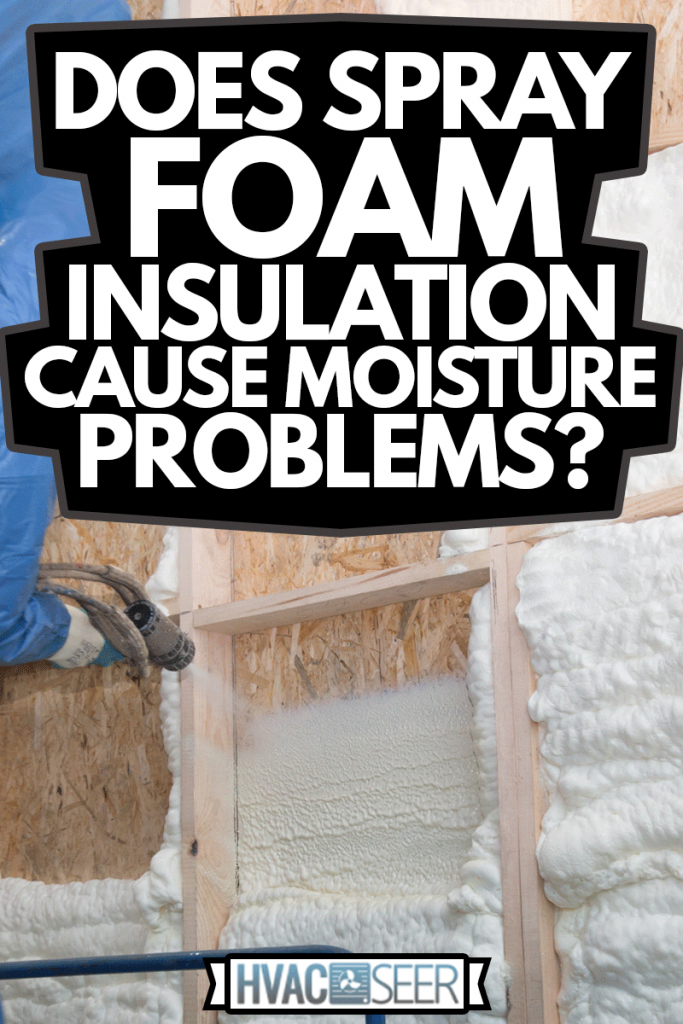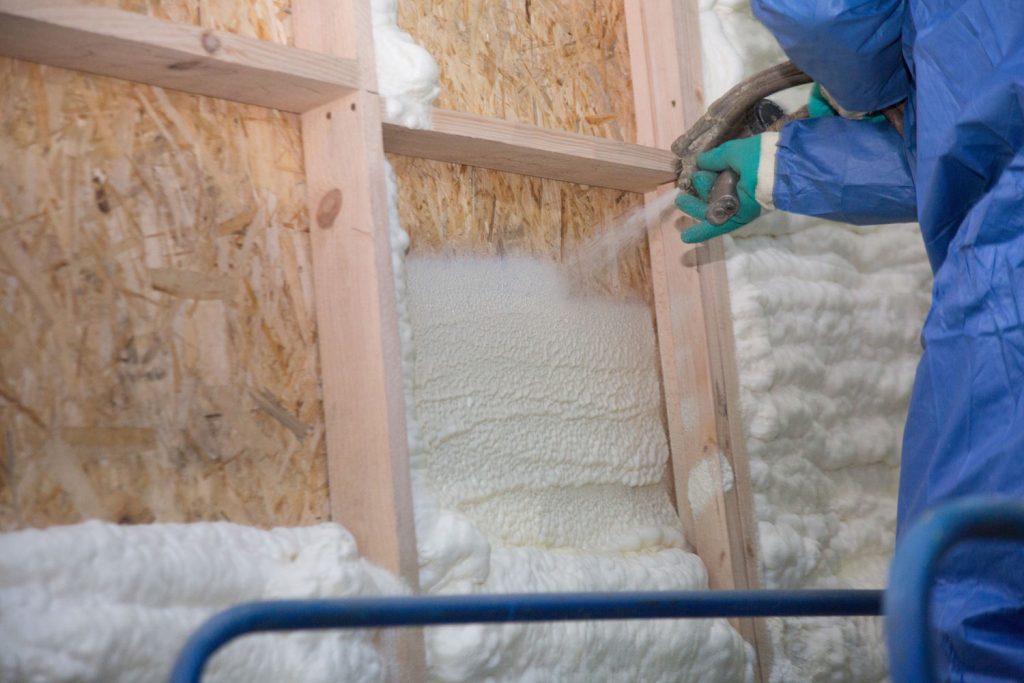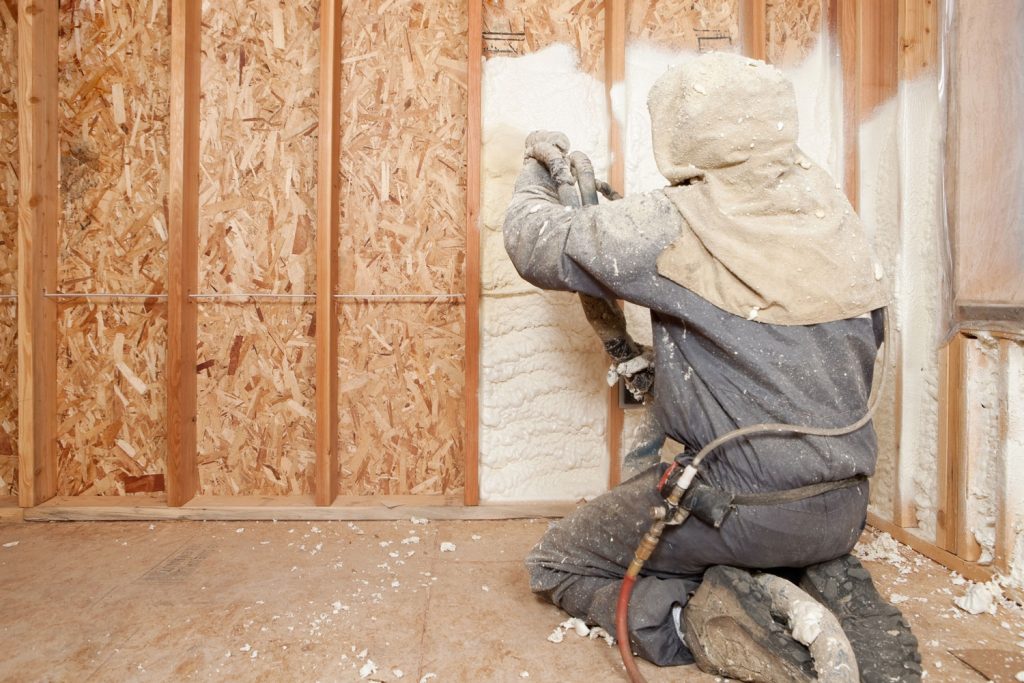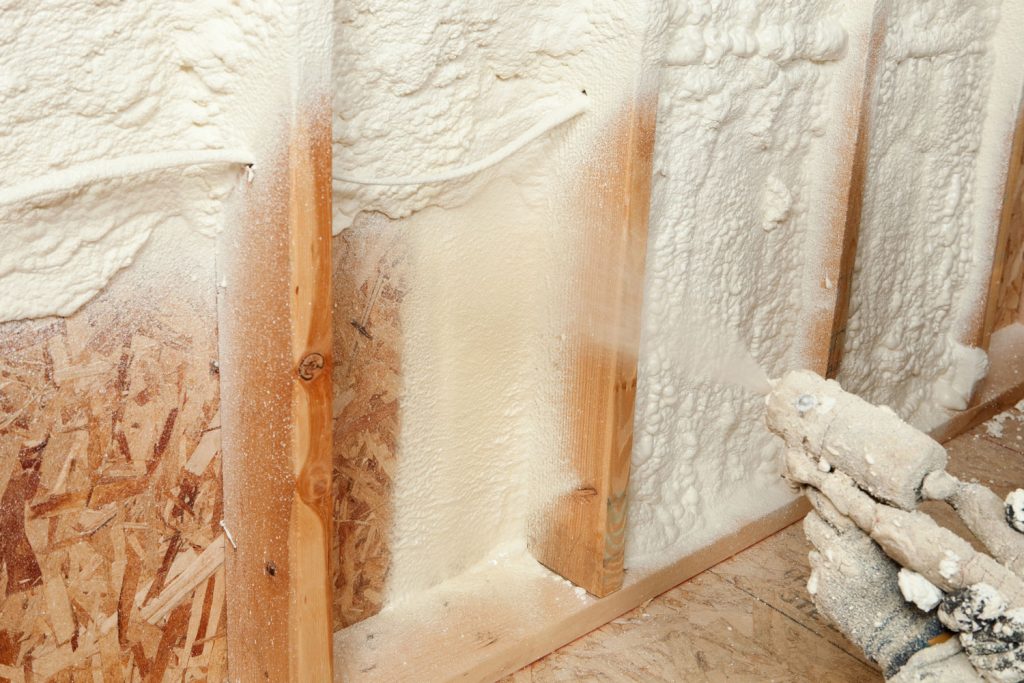Proper insulation in your home is necessary to keep out the cold during winter and keep it cool during summer. With many insulation methods available, you may be wondering which is the best and whether or not spray foam insulation causes moisture problems. We have consulted with the experts to give you a straightforward answer.
Spray foam insulation is one of the surest ways to keep moisture out, providing a well-conditioned and comfortable home all year round. But moisture problems can be brought about due to the following reasons:
- Poorly installed spray foam
- Incorrect thickness
- Improper mixing of spray foam chemicals
- Miscommunication
- Lack of proper research
- Misrepresentation of spray foam products
Keep reading to understand in-depth the benefits of spray foam insulation, the problems this method may present, the areas not to spray, and how long it lasts.

Can There Be Any Problems With Spray Foam Insulation?
Spray foam is an excellent way of insulating your home. It fills all the cracks, gaps, crevices, and holes to keep out the air from entering or getting out of your home. It expands when sprayed, creating an air seal, and it does not settle or sag over time.

There are two types of foam spray insulation: open-cell and closed-cell. Both are viable insulation methods, the main difference being that the open-cell has cells that are incompletely closed, making it soft and flexible. It is lightweight, expands very fast, can be permeable to water, and is cheaper.
Closed-cell foam spray on the other hand has cells that are completely closed meaning they are tightly pressed together such that water and air cannot pass through. It is more durable, firm, relatively permeable to water, more expensive, and excellent for use in homes that are susceptible to water exposure.
Whichever type of foam insulation you choose to use, if improperly done, can cause air or water to leak inside your home. Moisture problems can happen due to any of the following:
Poorly Installed Spray Foam
If the insulation is done in haste, it can lead to uninsulated spaces which reduce its efficiency. And, if sprayed too slowly, it may later need some touch-up to cover any spaces left out.
Incorrect Thickness
Ideally, the thickness of spray foam depends on where you intend to apply it and what you want to achieve.
Generally, open-cell spray foam will insulate well when it is 6 to 10 inches on a ceiling or roof deck. Approximately 3 inches of insulation is sufficient for the walls.
On the other hand, closed-cell spray foam will adequately insulate your home with a thickness between 2 and 3 inches, while the ceiling will do well with foam that is between 4 and 5 inches thick.
If the spray foam is less thick than it ought to be, then it can allow moisture to pass through. And, if it surpasses the required threshold, it does not improve the insulation. Instead, you will waste money by adding extra foam spray that is not needed.
Improper Mixing Of Spray Foam Chemicals
If the spray foam is not mixed properly, it can prevent it from adhering well to a surface. It will eventually fall off, allowing air and moisture to leak into the home.
Miscommunication
You might be wondering how communication can cause moisture problems. However, if you and your contractor are not on the same page, issues are bound to arise.
If you will be hiring the services of a professional, your contractor will need to understand exactly what you want to achieve. That way, the correct insulation will be installed. This also boils down to hiring a licensed contractor who can advise you accordingly.
Lack Of Proper Research
If you do not research well before hiring an insulation contractor, you may not comprehend fully what you are getting into, therefore you may not know the qualities of a qualified contractor.
And, if you do your research and the contractor cannot answer your questions, then you may need to keep looking until all your queries are answered. Otherwise, a shoddy job may lead to moisture seeping into your home.
Misrepresentation Of Spray Foam Products
There are many spray foam products, and if one is not careful, one can end up purchasing a product that is not suitable for the intended type of insulation.
If the wrong spray foam is used, it may not properly adhere to a cavity creating moisture problems that can promote the growth of mold and mildew.
This is where a licensed contractor comes in again, as they will be able to help you get the correct product.
What Are The Benefits Of Spray Foam Insulation To Your Home?

Spray foam is a highly recommended insulation, which if installed properly, has the following benefits:
Moisture Deterrent
Spray foam retains its properties even when it comes into contact with water. Also, its ability to expand allows it to completely cover even the tiniest of crevices or gaps preventing the water from passing through.
Check out this spray foam chemical on Amazon.
Have a look at this spray gun on Amazon.
Improved Comfort
It is impossible to feel any drafts with spray foam insulation because it provides an air-tight seal. Thus you will not feel any temperature fluctuations; instead, it stabilizes the temperature in your home, adding extra comfort.
Improved Quality Of Air
As spray foam does not allow in any moisture, no mold, mildew, or dust will enter your home, improving the quality of air. It also prevents pests and rodents from finding their way into your home, whose waste can adversely affect the air.
Also, this insulation does not release any harmful contaminants or toxic chemicals, making it safe to use and will not interfere with the quality of the air.
It’s Not Difficult To Install
It’s a non-intrusive method of insulation that only requires you to have a spray gun, the spray foam chemical, and your protective gear. It easily reaches the hard-to-reach area and dries quickly after spraying.
Lasts Long
This insulation lasts longer than most traditional insulation methods. It’s made from two chemicals, polyurethane, and isocyanate.
When sprayed, they harden and stay in one place without sagging or shifting over time. This means you can relax knowing you will not have to replace it for several years.
Energy Bills Reduced
The insulation provided by spray foam will help you save on your utility bills because the conditioning systems in your home will not have to work extra hard.
Where Should You Not Spray Foam Insulation?

Now that you know the benefits and the reasons for moisture problems with foam spray, it is good to pinpoint the areas you should not spray. They include:
Areas Close To The Electrical Box
It is okay to insulate between the outside wall and the back of the electrical box. However, do not spray foam here, because if it gets inside the box, it may cause the parts to jam.
In addition, it ends up becoming a potential fire hazard as it introduces flammable chemicals inside the box.
If you must use spray foam, then use one that has low-expansion capabilities.
Areas Close To The Ceiling Light-box
If you spray too close to these boxes, heat can get trapped inside, increasing the risk of a fire. You may have to consult with your contractor for alternative options.
On The Roof
Open-cell spray foam is not suitable for the roof because it is permeable to water.
Even if it keeps water out, any moisture from the inside can penetrate the insulation, and with time it will accumulate, causing the roof to rot and eventually disintegrate. Closed-cell spray is the best for the roof.
History Of Respiratory Or Skin Problems
If you have had skin or respiratory problems for a long time, you should not apply the spray foam, or it may worsen your condition. Call for professional help.
How Long Does Spray Foam Insulation Last?
https://www.istockphoto.com/photo/spray-polyurethane-foam-for-roof-gm1022727968-274547436
Spray foam is a superior barrier against moisture because when it is dry, water cannot pass through, meaning mold and mildew will not have a chance of growing or thriving.
If installed properly, it can last a lifetime, as it adheres very well to most substrates and becomes rigid when dry. Even your roof can last at least 30 years if maintained well.
In Closing
Spray foam insulation enters into the gaps, crevices, or holes, no matter how small they may be, because of its ability to expand.
It is an excellent barrier to moisture as it seals tightly, preventing entry of air or water into your home.
However, moisture problems can happen if not installed properly. Other reasons include lack of adequate research, lack of proper communication, including other viable reasons.
Before you go, find out from these other posts how heavy spray foam insulation can be and what can be used to remove it if necessary:


